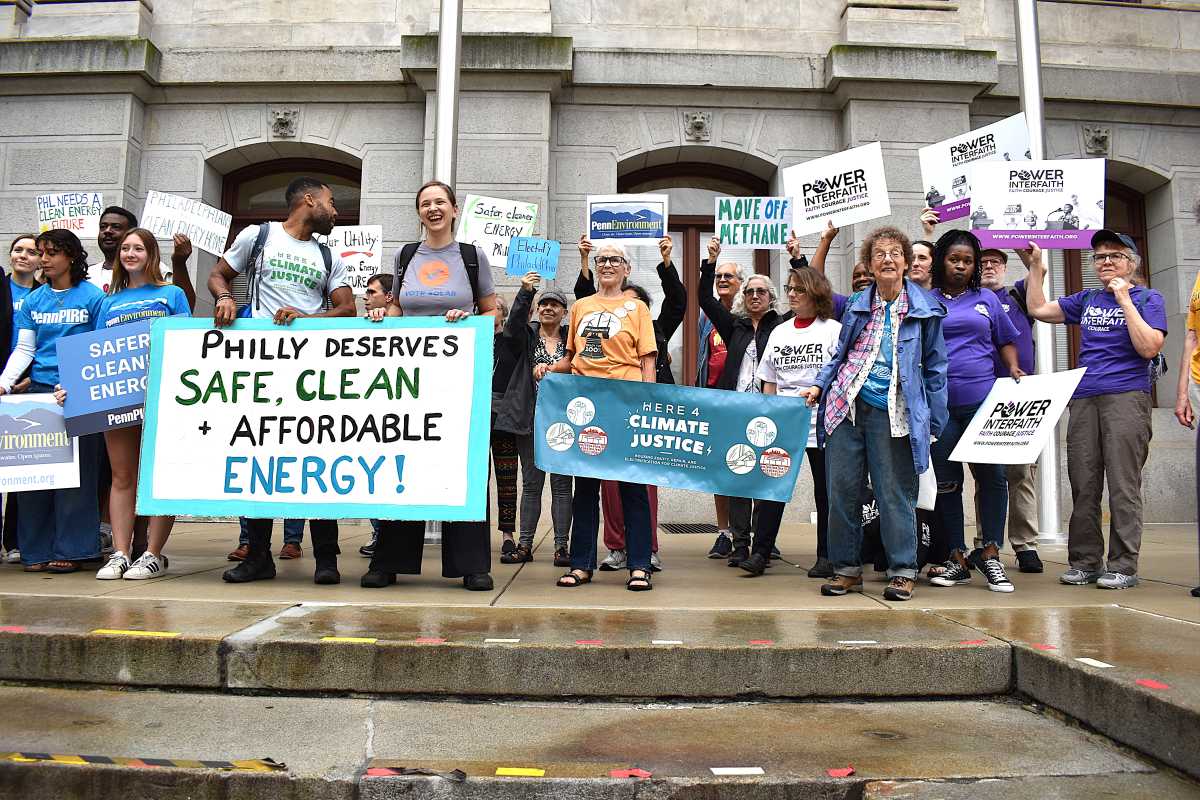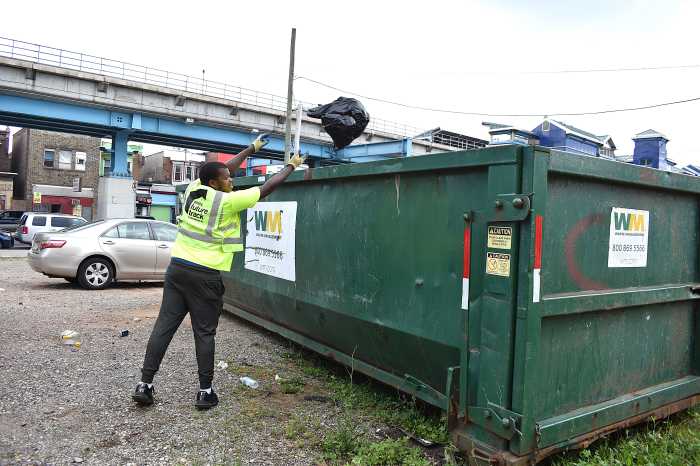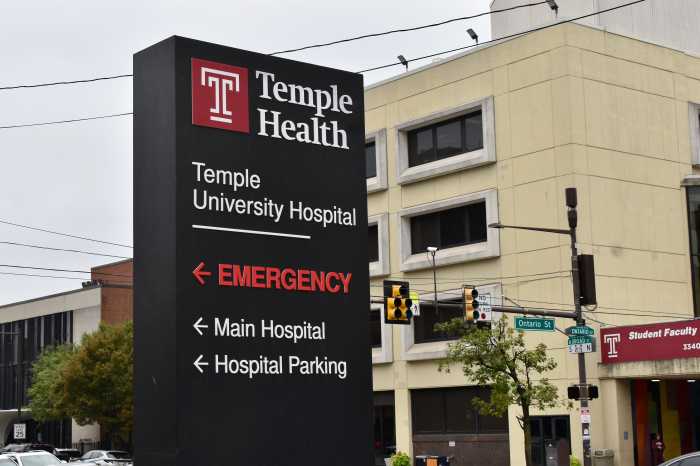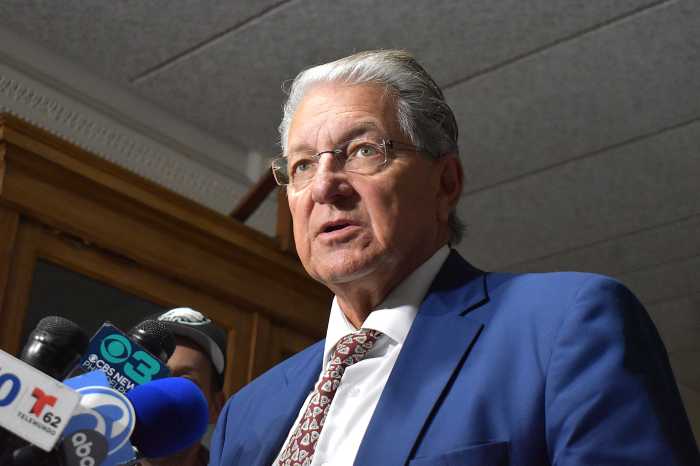Environmental justice advocates rallied Wednesday outside City Hall to celebrate a settlement with Philadelphia Gas Works that represents a significant reduction from the rate hikes the utility company proposed earlier this year.
The pending agreement, filed in early August, “contains important steps towards a clean energy future for Philadelphia and provides critical protections for Philadelphians against rising energy costs,” said Flora Cardoni, deputy director of PennEnvironment.
Under PGW’s original plan, the average monthly residential gas bill would have jumped 13%, from $92.60 to $104.61. The settlement incorporates a more modest 6.6% increase, equal to $98.70. Ratepayers, as a whole, will fork over about $62 million more a year, 40% less than was initially contemplated.
Crucially, PGW agreed – “reluctantly,” it says in court documents – to drop a proposed revenue normalization adjustment, which would have helped the city-owned utility account for unexpected monetary shortfalls
Activists decried the measure as a ‘revenue guarantee’ hoisted onto residents, while utility officials promoted the adjustment as important to financial stabilization.
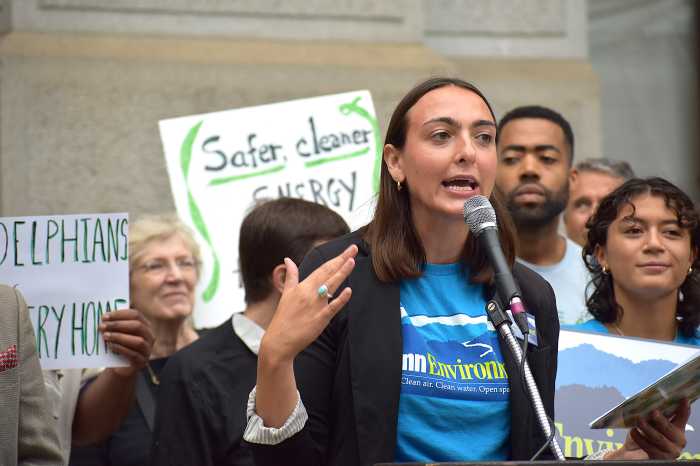
A somewhat similar fee, known as the weather normalization adjustment, had been showing up on PGW bills for more than two decades. A surcharge is added when temperatures are unseasonably warm, leading to lower heating costs and disrupting the organization’s cash flow.
The controversial WNA will remain; however, the settlement stipulates that the number be capped at no more than 25% of the total customer bill. In addition, PGW committed to reviewing its weather data and analyzing the possibility of using 10-year numbers, instead of 20-year averages.
PGW also agreed to allocate $9 million to a program to help low-income Philadelphians weatherize their homes.
The city-owned company, which manages 6,000 miles of gas lines and serves about half a million customers, filed for a rate change in February. The Pennsylvania Public Utilities Commission halted the adjustments and opened an investigation.
At that point, a selection of nonprofit special interest groups, known in legal documents as energy justice advocates, formally intervened in the case. They include POWER Interfaith, Sierra Club Pennsylvania, Physicians for Social Responsibility Pennsylvania, Clean Air Council, Vote Solar, PennEnvironment, and PennPIRG,
Though the 271-page settlement has been approved by all parties, it still needs to go before the PUC. A decision is expected in November, and the new rates will be implemented a short time later.
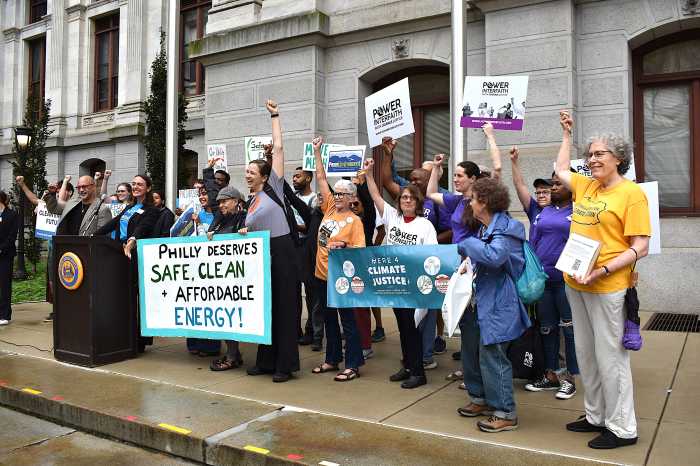
A PGW spokesperson declined to comment on the specifics of the agreement. On the utility’s website, the company posted that the settlement “is in the best interests of PGW and its customers and provides customer service enhancements that will benefit low-income and residential customers.”
Cardoni characterized the development as “just one milestone,” adding that the “process for reforming PGW is a marathon and not a sprint.”
Advocates have been pushing for the utility company to move away from investing in gas infrastructure, in favor of cleaner, renewable energy sources.
To that point, the settlement requires PGW to hold at least two community meetings to examine pathways to reduce greenhouse gas emissions – a first-of-its-kind public engagement process for the company, according to environmental organizers.
“PGW needs to be on the right side of history, and I believe it will be,” state Rep. Chris Rabb said at Wednesday’ rally. “And it’s because of all of you coming together to make it happen.”
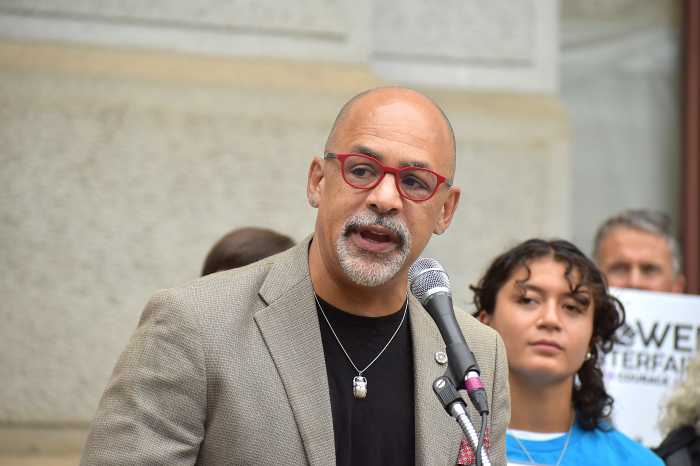
Rabb and his colleague, Rep. Ben Waxman, praised the advocates for holding PGW accountable and pushing for change.
“What we have here today is an example of organizing, of activists intervening and forcing a public institution to come to the table and make a settlement that grapples with the reality,” Waxman said. “And the reality is the climate crisis is here. It is only going to get worse due to inaction, and we have government at almost every level that appears unwilling to act.
“Our lesson from that is not to give up. Our lesson from that is to fight back and to force our public institutions to respond in the way that is required to the coming climate crisis that is already here.”



